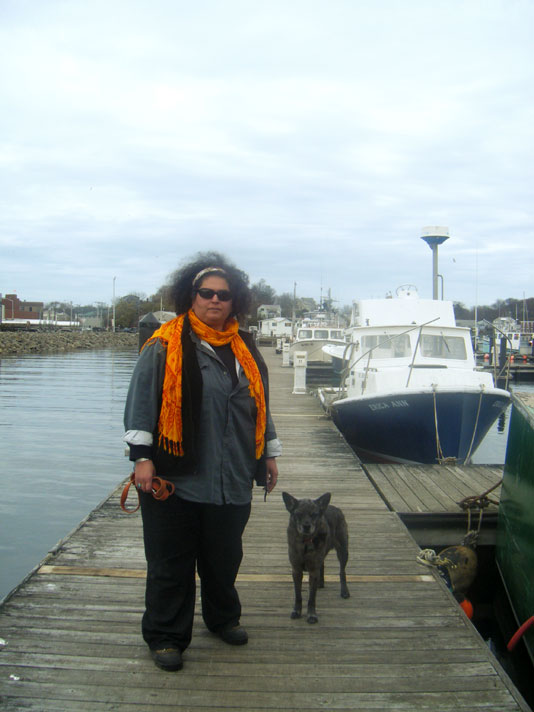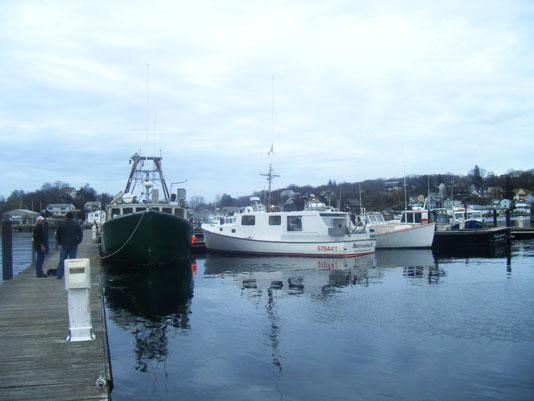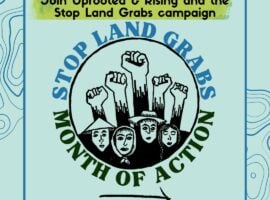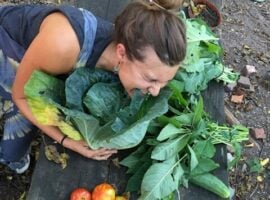Christina Schiavoni, WhyHunger’s Director of Global Movements, recently traveled up the East Coast to connect with our partners at the Northwest Atlantic Marine Alliance….
I had an eye-opening visit to the fishing community of Gloucester, Massachusetts, last week, hosted by Niaz Dorry of the Northwest Atlantic Marine Alliance, or NAMA. NAMA is a fantastic organization that works tirelessly on issues impacting family fishermen, pass4sure 000-284 coastal communities, and marine ecosystems, connecting to broader issues of food justice and food sovereignty. One of the things that impresses me about NAMA is how they work side by side in the trenches—and waterways—with small-scale fishermen, fighting corporate consolidation of the fishing industry while building viable alternatives, like Community-Supported Fisheries.

Another thing NAMA is spending a lot of time on these days is educating people like me—people in the food movement who might have some awareness and concern about fishing issues, but whose thinking has been largely “land-locked.” Let me be the first to admit that, yes, I fall into this category. But groups like NAMA are helping us to realize how absolutely critical fisheries issues are when it comes to food justice and food sovereignty, and how the same alarming trends happening in agriculture are happening in fisheries. pass4sure 000-284 Food producers being driven out of business and into poverty; pressure to “get big or get out”; dismantling of communities, cultures, and traditions; large-scale operations wrecking havoc on the environment and threatening future food supplies; the commodification of food, jobs, and people—all this and more is happening in the realm of fisheries, just as it is happening in agriculture. And just as agriculture and fisheries are inextricably linked when it comes to the problems of our food system, so too are they linked when it comes to the solutions.
 Needless to say, there is a huge task in building the understanding and solidarity necessary to bring movements around farms and fisheries together if we’re ever going to truly tackle these issues. Just as I was pondering all this and thinking about writing something, a fantastic piece by Brett Tolley of NAMA came into my inbox that wove together these issues far better than I ever could. Please read this piece, in which he shares some powerful reflections from his time in Oakland for the first national assembly of the US Food Sovereignty Alliance about the connections between poverty, violence, and the destruction of local food economies. Here’s a little excerpt:
Needless to say, there is a huge task in building the understanding and solidarity necessary to bring movements around farms and fisheries together if we’re ever going to truly tackle these issues. Just as I was pondering all this and thinking about writing something, a fantastic piece by Brett Tolley of NAMA came into my inbox that wove together these issues far better than I ever could. Please read this piece, in which he shares some powerful reflections from his time in Oakland for the first national assembly of the US Food Sovereignty Alliance about the connections between poverty, violence, and the destruction of local food economies. Here’s a little excerpt:
“The right to healthy food and a just food system is about much more than just our food. It involves complex uses of the land, sea, and natural resources. It involves the people who harvest, raise, catch, and even eat our food. It involves the communities who help move the food to our stores, into our kitchens, and onto our plates. And it involves the health of every single person along that food chain because we depend on food for nutrition. Issues such as poverty and social injustice undermine this entire system. That is why at NAMA we believe that connecting our local fishermen to the larger picture of food justice is critically important. Food overlaps so many of our social, economic, and environmental struggles and without paying attention to each piece we risk jeopardizing them all.” (Read the full piece.)
Brett comes from a fishing family going back four generations. He knows first-hand the struggles of fishing communities and has dedicated himself to those struggles, as part of broader movements for food justice and food sovereignty. I think it’s high time for the rest of us who consider ourselves to be part of these movements to stand with Bret, Niaz, and all others who fish for a living and/or work in support of fishing communities. I am excited to share that WhyHunger will be collaborating with NAMA on new material for our Food Security Learning Center, which we hope will be a helpful tool. We are also excited to be working with NAMA and others to ensure that fishery issues are part of the agenda of the US Food Sovereignty Alliance for 2012 and to get more fishing groups involved (read this piece by WhyHunger’s Tristan Quinn-Thibodeau for more on that). Food movement folks, it’s time to get our sea legs!




